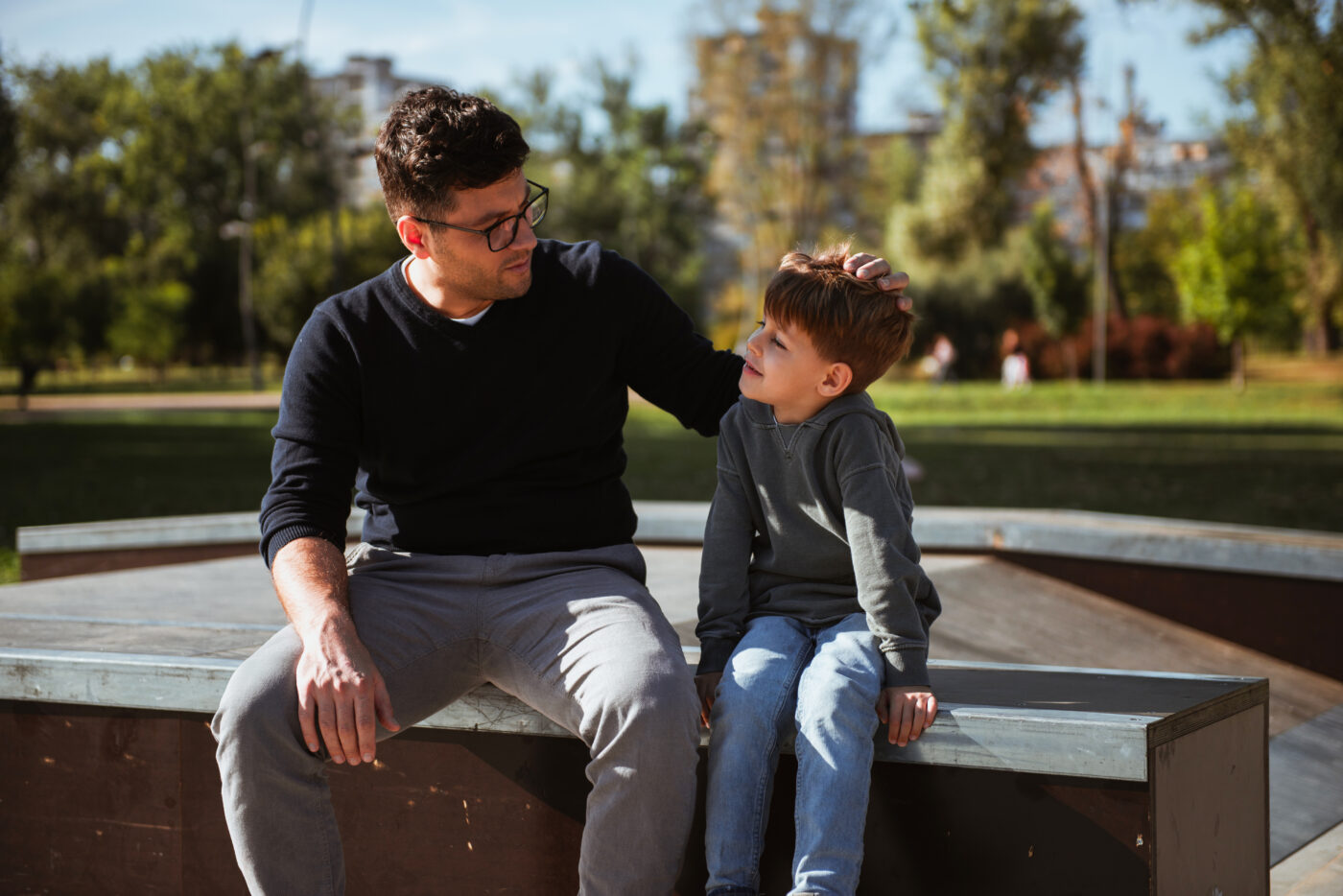Plato once said, “Only the dead have seen the end of war.” While I would hope this to be false, history seems to be on Plato’s side here. It seems there’s always a war happening somewhere. And now, with 24/7 news media coverage and, even more, the ubiquitous nature of amateur reporting via services like TikTok, we are constantly bombarded with images and opinions about it.
War is overwhelming and confusing for most of us but particularly for children. And when we ourselves are confused, it can be really challenging to know how to explain war to a child. While each individual will respond differently, there are some practical steps you can take that can make navigating these conversations a little easier. Here are 5 ways to talk to your kids about war.
1. Ask lots of questions.
Your child is going to want answers. And often, there aren’t good ones to give. But you can use the opportunity with her to process conflict and response. Consider asking her questions to find out what she knows about what is happening. Then invite her to consider alternative ways to respond. Maybe ask her what she would do if she were president, queen, or prime minister. What would be a better way to handle it? Engaging her in conversation around it allows her to think through how to handle conflict but also provides the opportunity for her to verbalize her anxiety.
2. Stay calm.
War raises strong emotions in us. It should. But we need to find healthy ways to process that separate from our child. What your child needs from you is a non-anxious presence. Assuming that the war you are discussing is not at your doorstep, your child needs assurance that, as horrible as the images are that he’s seeing, he’s going to be OK. It will help both of you if you limit the amount of news you are taking in about the issue. Being informed is good. Being consumed is not.
3. Look for the helpers.
When thinking about how to explain war to a child, one of the challenges is that there isn’t always a clear “good” and “bad.” In many instances, even the side that seems largely justified is doing things that are horrific. Because war is, by its very nature, horrific. So how do you help a child wrap her head around this? Fred Rogers has a famous quote he attributes to his mother. He says whenever he would hear about some tragedy as a boy, she would encourage him to “look for the helpers.” These are the people who, in the midst of the tragedy, show up to care for those involved. Where possible, look for the stories of helpers in the midst of war. There are always people who perform heroic acts to help others, often at great personal risk. Point to them and talk to your child about traits like courage and compassion.
4. Learn together.
One of the things war often does is raise our awareness of issues we were previously ignorant of. As Mark Twain once quipped, “God invented war so that Americans would learn geography.” Take this opportunity to learn about a new region of the world with your child. What are the issues that arose that led to the conflict? Why those issues in that particular region? Is there a veteran you know who would be comfortable talking with your child about his or her experiences? Learning together is a great way to grow understanding and compassion in both of you.
5. Think of practical ways to respond.
One of the most difficult things about tragedy happening around the world is that you feel powerless to do anything. If there are tangible ways you feel like you can help, it can ease that sense of powerlessness ever so slightly. As you think about how to explain war to a child, consider practical opportunities for him to respond. Can you donate money to a charity working to care for civilians? Do you know anyone in the military to whom you could encourage your child to write letters (even if it’s not your military involved in the war)? Perhaps you could volunteer at a local VA. Could you commit to praying together for those involved? Practical steps, however small, provide meaningful ways to empower your child.
Sound off: What other suggestions might help as you consider how to explain war to a child?











Huddle up with your kids and ask, “If you were the leader of a country and you had conflict with another country, how would you handle it?”